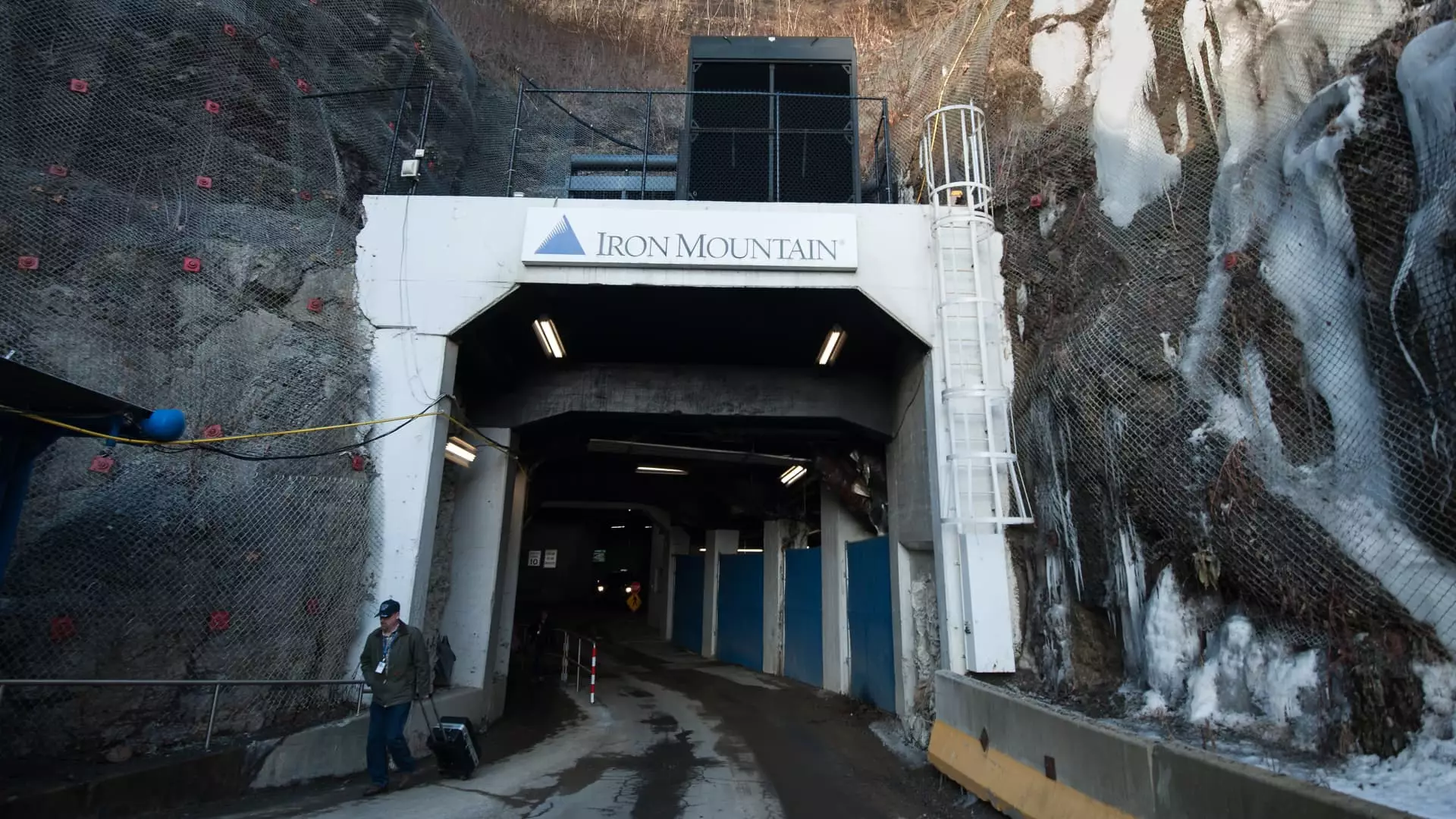In the dynamic arena of governmental operations, efforts aimed at improving efficiency are often overshadowed by longstanding traditions and bureaucratic anomalies. A recent conversation between tech entrepreneur Elon Musk and then-President Donald Trump shed light on this issue, particularly regarding the inefficient storage of retirement paperwork in an archaic limestone mine. As Musk criticized the existing systems while promoting his initiative—dubbed the DOGE (Department of Government Efficiency)—he inadvertently stirred both attention and skepticism towards Iron Mountain, the company responsible for these storage facilities.
During a notable meeting in the Oval Office, Musk took the opportunity to spotlight what he views as a glaring inefficiency. He described the limestone mine, started in 1955, as resembling a “time warp,” lamenting that the elevator speed of the mine directly impacts the federal government’s capability to process retirement applications for its employees. His portrayal of this outdated method of handling vital documents not only struck a chord of astonishment but also raised questions about the operational competency of essential government functions. Musk posed a rhetorical question regarding the absurdity of this arrangement, implying that in a digital age, such practices should be relics of the past, begging for overhaul.
Musk’s critique may have intensified scrutiny over the Iron Mountain company, which, notwithstanding its long-standing contract with the federal government, appears to be at a juncture where its future dealings could become susceptible to significant changes. This moment reveals a crossroads where traditional business models must adapt to pressing needs for efficiency and modernization.
Iron Mountain, the firm managing the mine and government contracts, found itself facing a backlash following Musk’s remarks. CEO Bill Meaney acknowledged the controversy, referring to DOGE’s efficiency initiative as a “growth opportunity” for the company. Notably, Iron Mountain’s financial model hinges significantly on its digital transformation services, which generate considerably more revenue than its physical storage, amounting to roughly $130 million—nearly thirteen times the $10 million generated from government document storage.
Despite Meaney’s optimistic outlook, the near-immediate stock market reaction told a different story. Following Musk’s comments, Iron Mountain’s shares plummeted over 10%, reflecting investor apprehension regarding potential cutbacks in federal contracts. These financial fluctuations serve as an emblem of the broader apprehension regarding how governmental efficiency drives could upend longstanding corporate alliances, especially for firms that have become accustomed to steady revenue streams from government contracts.
However, this incident may also be a signal of shifting tides in corporate-government relationships. Analysts like Wells Fargo’s Eric Luebchow have underscored the overreaction seen in stock valuations, highlighting that Iron Mountain’s revenue is not solely predicated on its relationship with the federal government. Luebchow’s assertion that any abrupt contract termination would likely lead to compensation in the form of termination fees should assuage some investor unease.
Moreover, Iron Mountain’s diversified portfolio indicates that it may be well-positioned to pivot away from reliance on government contracts with the right strategies in place. The company’s engagement with over 200 federal agencies—both as a direct service provider and as a subcontractor—demonstrates its entrenched role in America’s bureaucratic machinery. Furthermore, the legal requirements for record keeping by the government create a safety net for Iron Mountain, ensuring continual demand for certain services.
As discussions around the DOGE initiative continue, the implications reach far beyond the fate of Iron Mountain. Musk’s bold assertions are likely to prompt other corporations that liaise with federal agencies to carefully reassess the viability and sustainability of their contracts. The need for a move toward digitization and updated methodologies presents a roadmap for firms aiming to succeed in a rapidly evolving landscape.
Musk’s focus on efficiency resonates with broader criticisms of governmental operations, which are often mired in inefficiencies and dated practices. His critiques warrant further investigation into how technological advancements can remedy such disconnects, pushing boundaries of traditional document management towards innovative solutions.
The dialogue sparked by Musk and Trump has opened a broader conversation about efficiency in governmental operations. The necessity for modernization is apparent. As companies navigate this terrain, understanding the interplay between government mandates and corporate adjustments will be vital for fostering a more efficient future infrastructure. The potential for innovation amidst scrutiny represents not just a challenge for firms like Iron Mountain but an opportunity for all parties involved in government operations.

